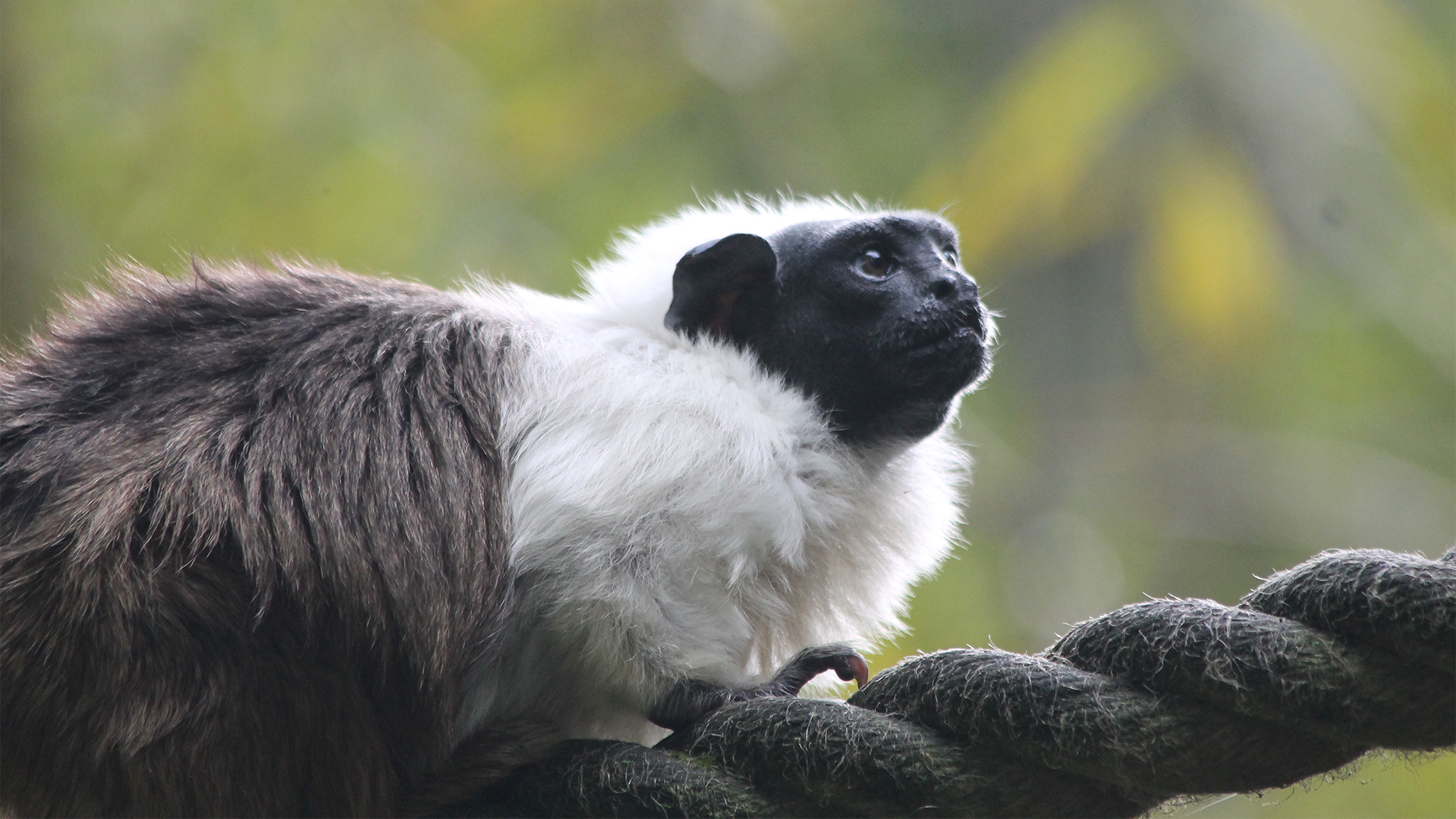

In an increasingly noisy world, some primates are pushing to be noticed with another sense. A study published September 20 in the journal Ethology Ecology & Evolution found that pied tamarin monkeys use scent markings to communicate more often so they can compensate for noise pollution generated by humans.
[Related: Noise pollution messes with beluga whales’ travel plans.]
Pied tamarins are 11 to 12 inch long monkeys with furry bodies and bare faces. The species is currently listed as Critically Endangered by the IUCN. They live in a very narrow geographic range in central Brazil. Most of their territory now lies within the city of Manaus, a port city of about 2.6 million residents. The expansion of the city has restricted individual groups of monkeys to small patches that are surrounded by noisy urban spaces.
Communicating with other groups of monkeys is crucial for their survival, so in addition to long vocal calls, pied tamarins use multiple types of scent markings to send messages. The scent markings have different functions, including passing along territorial and reproductive information. Pied tamarins have special glands above their genitals and near their stomachs that emit these scents that leave behind an olfactory message to other monkeys. This practice is also not unique to pied tamarins. Domestic and wild felines can use their famously pungent spray to mark territory, as do dogs and red pandas to name a few other mammals.
In the new study, a team from the Universidade Federal do Amazonas in Brazil and Anglia Ruskin University in England looked at the behavior of nine separate groups of wild pied tamarins. They followed each group for 10 days using radio tracking and the most common source of anthropogenic noise was road traffic. There was also noise pollution from park visitors, aircraft, and military activity.
The team found that the frequency of scent marking directly increased with decibel levels, which suggests that scent marking is being used more frequently as their vocal communication becomes more drowned out by human noise.
“Many species depend on acoustic signals to communicate with other members of the same species about essential information such as foraging, mate attraction, predators, and territorial defense,” study co-author and Universidade Federal do Amazonas biologist Tainara Sobroza said in a statement.
Their long vocal calls are generally used to mark territory and for communications between members of the group. In Manaus, they are important since the forest landscape is fragmented and urban areas are encroaching on their territory. The authors believe that this increase in scent marking is directly tied to this increase in urbanization.
[Related from PopSci+: Why your dog needs to smell the world.]
“Humans have contributed many additional stimuli to the soundscapes that animals have evolved to deal with, and anthropogenic noise is increasingly drowning out natural sounds,” study co-author and Anglia Ruskin University behavioral ecologist Jacob Dunn said in a statement. “The increased use of scent marking by pied tamarins is likely to be a flexible response towards this environmental change. This is an interesting result from a conservation perspective as it shows pied tamarins are adapting their behavior in response to city noise.
One of the advantages scent marking has over vocal communication is that the information can be passed on over several days, instead of just after making a call. On the other hand, vocal calls are a better way of communicating over long distances.
“As the pied tamarins’ range is becoming more fragmented and groups are becoming more isolated, this could potentially have a detrimental impact on a species which is already critically endangered,” said Dunn.
